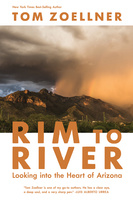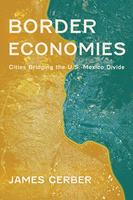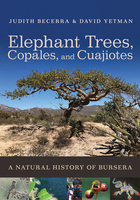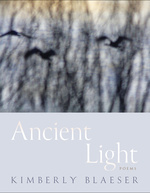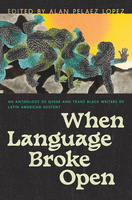The University of Arizona Press is the premier publisher of academic, regional, and literary works in the state of Arizona. They disseminate ideas and knowledge of lasting value that enrich understanding, inspire curiosity, and enlighten readers. They advance the University of Arizona’s mission by connecting scholarship and creative expression to readers worldwide.
Yaguareté White
Poems
Rim to River
Looking into the Heart of Arizona
Border Economies
Cities Bridging the U.S.-Mexico Divide
Using a combination of economic history and analysis, Border Economies explores how the location of U.S. and Mexican communities on the border are shaped by forces that originate on the other side.
Elephant Trees, Copales, and Cuajiotes
A Natural History of Bursera
Woven from the Center
Native Basketry in the Southwest
Woven from the Center presents breathtaking basketry from some of the greatest weavers in the Greater Southwest. Each sandal and mat fragment, each bowl and jar, every water bottle and whimsy is infused with layers of aesthetic, cultural, and historical meanings. This book offers stunning photos and descriptions of woven works from Indigenous communities across the U.S. Southwest and Northwest Mexico.
Ancient Light
Poems
Ancient Light is a timely and innovative collection by renowned Anishinaabe poet Kimberly Blaeser. It looks squarely at pressing social issues of our time while simultaneously invoking Indigenous pathways of kinship, healing, and renewal.
When Language Broke Open
An Anthology of Queer and Trans Black Writers of Latin American Descent
This collection of creative offerings by forty-three queer and trans Black writers of Latin American descent helps illustrate Blackness as a geopolitical experience that is always changing. In centering the multifaceted realities of the LGBTQ community, the anthology's contributors challenge everything we think we know about gender, sexuality, race, and what it means to experience a livable life.
Light As Light
Poems
Light As Light is acclaimed poet Simon J. Ortiz’s first collection in twenty years. The poems in this volume are a powerful journey through the poet’s life—both a love letter to the future, and a sentimental, authentic celebration of the past.
Ordinary Injustice
Rascuache Lawyering and the Anatomy of a Criminal Case
Hottest of the Hotspots
The Rise of Eco-precarious Conservation Labor in Madagascar
Continually recognized as one of the “hottest” of all the world’s biodiversity hotspots, the island of Madagascar has become ground zero for the most intensive market-based conservation interventions on Earth. This book details the rollout of market conservation programs, including the finding drugs from nature—or “bioprospecting”—biodiversity offsetting, and the selling of blue carbon credits from mangroves. It documents the tensions that exist at the local level and provides a voice for community workers many times left out of environmental policy discussions, ultimately in the hope of offering critiques that build better conservation interventions with perspectives of the locals.



